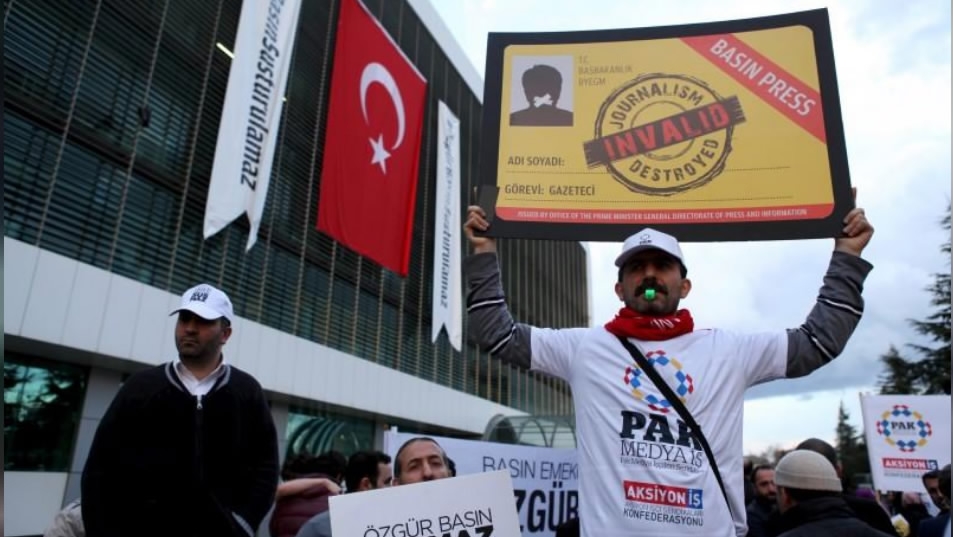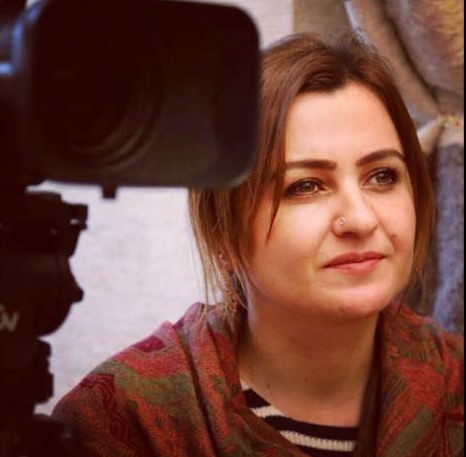
World
13:52, 03-Mar-2018
Female-only news site fights Turkey 'terror propaganda' ban
CGTN

A news website staffed only by women in the Kurdish-majority Turkish city of Diyarbakir is pushing back against the authorities who have shut it down twice for allegedly making "terror propaganda."
Jin News Agency, from the Kurdish word for woman "Jin," specializes in Kurdish and women's issues and publishes in Kurdish, Turkish, Arabic and English.
Written for women, it is run by a female-only team from the accountant to the photographer, and editors to camerawomen.
The agency, set up in 2012, has come under pressure from the Turkish authorities who have closed it twice and shut off access to the agency seven times.
Turkish authorities accuse the agency of making "terror propaganda" for the outlawed Kurdistan Workers' Party (PKK), which has waged an insurgency against Turkey since 1984.
The PKK is proscribed as a terror group by Ankara and its Western allies, and since the breakdown of a ceasefire in 2015, Turkey has launched a relentless crackdown against the group.
The crackdown has been wide, with media seen as sympathetic to the PKK finding themselves in the crosshairs of the authorities.
President Recep Tayyip Erdogan has argued there is no difference between a "terrorist holding a gun or a bomb or those who use their pen to serve their aims."

Jin News Agency reporter Durket Suren, who was reportedly detained in Lice district of Diyarbakir province on the ground that a “search” decision has been issued against her /Photo courtesy of Jin News Agency
Jin News Agency reporter Durket Suren, who was reportedly detained in Lice district of Diyarbakir province on the ground that a “search” decision has been issued against her /Photo courtesy of Jin News Agency
Turkey stepped up the campaign after the failed July 2016 coup attempt, with dozens of media outlets accused of links to putschists and the PKK closed down.
There are currently six legal cases against Jin News Agency accusing it of "terror propaganda."
Its website is blocked in Turkey.
The agency rejects the accusations and says that the issue is one of press freedom.
It is continuing to publish news but the articles can only be read on social media and accessible via Virtual Private Networks (VPN).
Camerawoman Beritan Elyakut, based in Diyarbakir and working for the agency for five years, complained the website was unable to "reach the outside world."
"What else can we do?" she added as she filmed a story ahead of International Women's Day on March 8, saying the website used six different domain names "but closures continued uninterrupted."
(Cover Photo: Employees of Zaman newspaper gather at the courtyard of the newspaper during a protest in Istanbul, Turkey, March 4, 2016. /Reuters Photo)
Source(s): AFP

SITEMAP
Copyright © 2018 CGTN. Beijing ICP prepared NO.16065310-3
Copyright © 2018 CGTN. Beijing ICP prepared NO.16065310-3